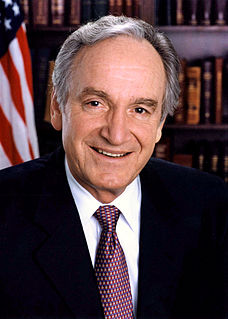A Quote by Mehmet Oz
You cannot drive a system that's going to be aiming at preventing illness if everyone is not in it. The whole gaming of health insurance and health care in America is based on that fundamental principle: insure people who aren't sick and you don't have to pay more money on them.
Related Quotes
In comparison to the U.S. health care system, the German system is clearly better, because the German health care system works for everyone who needs care, ... costs little money, and it's not a system about which you have to worry all the time. I think that for us the risk is that the private system undermines the solidarity principle. If that is fixed and we concentrate a little bit on better competition and more research, I think the German health care system is a nice third way between a for-profit system on the one hand and, let's say, a single-payer system on the other hand.
The Affordable Care Act is a huge problem. [Repealing the ACA is] going to have huge implications. We have millennials that live in Boston that are on their parents' health insurance. The businesses have hired them and have been able to hire more people because they have been able to be on their own health insurance. We have seniors in our city who have preexisting conditions, or something called a "donut hole," which is a prescription drug [gap] in Medicare. Whatever changes they make could have detrimental effects on people's health care, but also on the economy.
While Free Choice Vouchers didn't fulfill my vision of a health care system in which every American would be empowered to hire and fire their insurance company, they were a foothold for choice and competition and a safety valve for Americans whose employers are already forcing them to bear more and more of their family's health insurance costs.
The problem of giving health care to everybody cannot be solved so long as we're spending huge sums of money for war. Already we have a very wasteful healthcare system, the most wasteful healthcare system in the world. I mean, we spend the most money and still have 40 million people without insurance. Compare us to Cuba. Cuba is our enemy, run by a dictator, Fidel Castro. But people in Cuba get health care at least equal to that of the United States - with very scarce resources. So I think this issue is the most important domestic issue.
The premise of insurance is to spread the risk. It's the premise of homeowner's insurance, of car insurance, and of health insurance. It's one reason why it's important to have insurance when you're healthy, so that when you get sick, you won't go sign up just when you get sick, because that increases the cost for everyone.



































